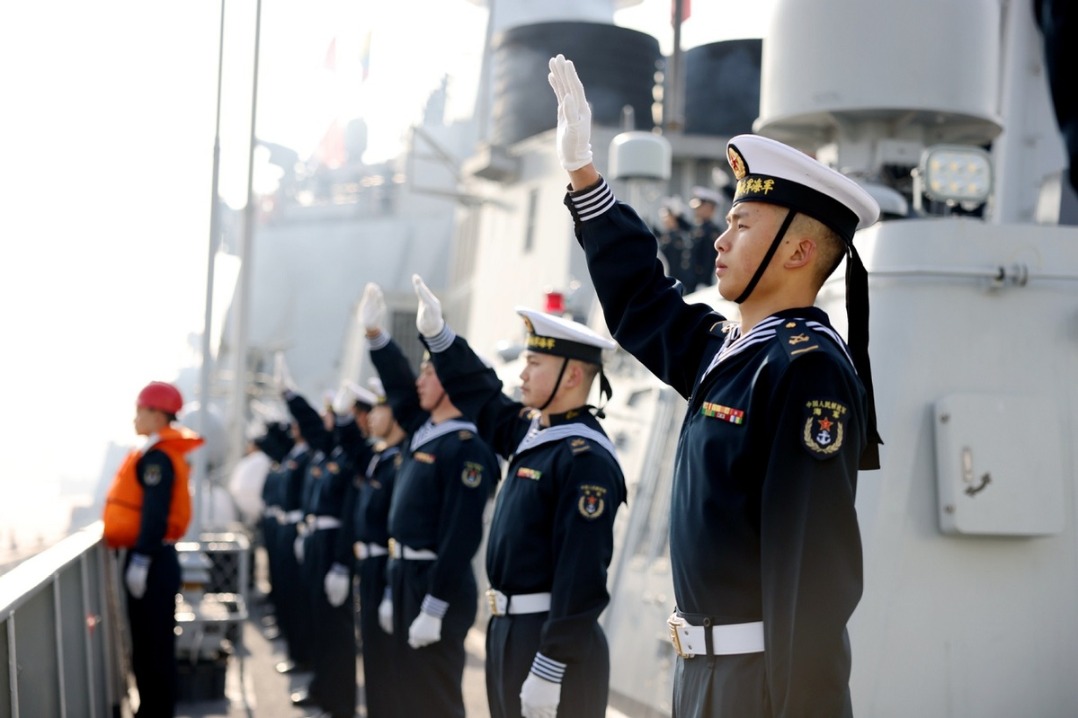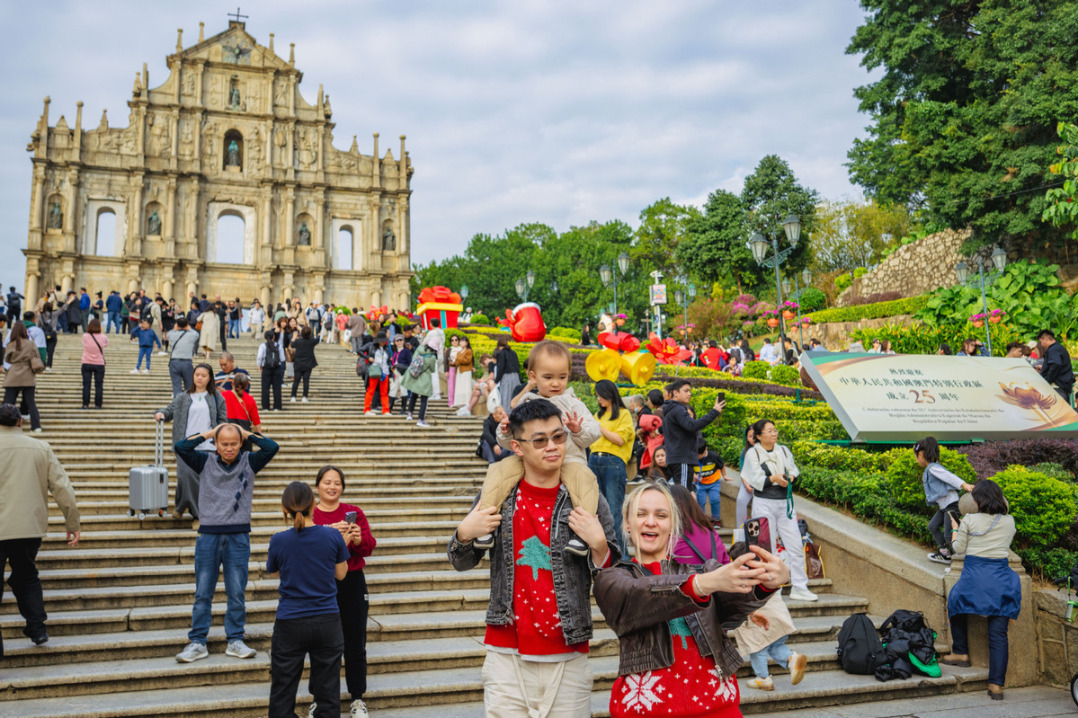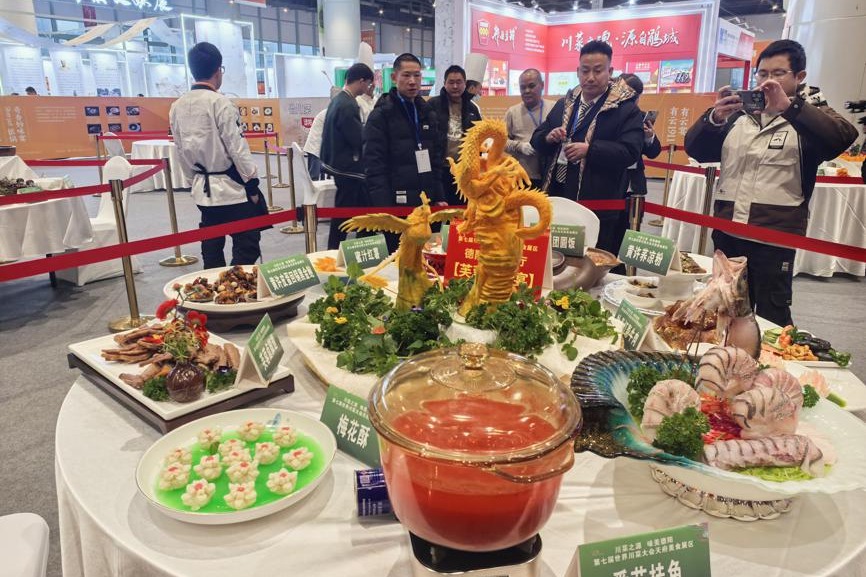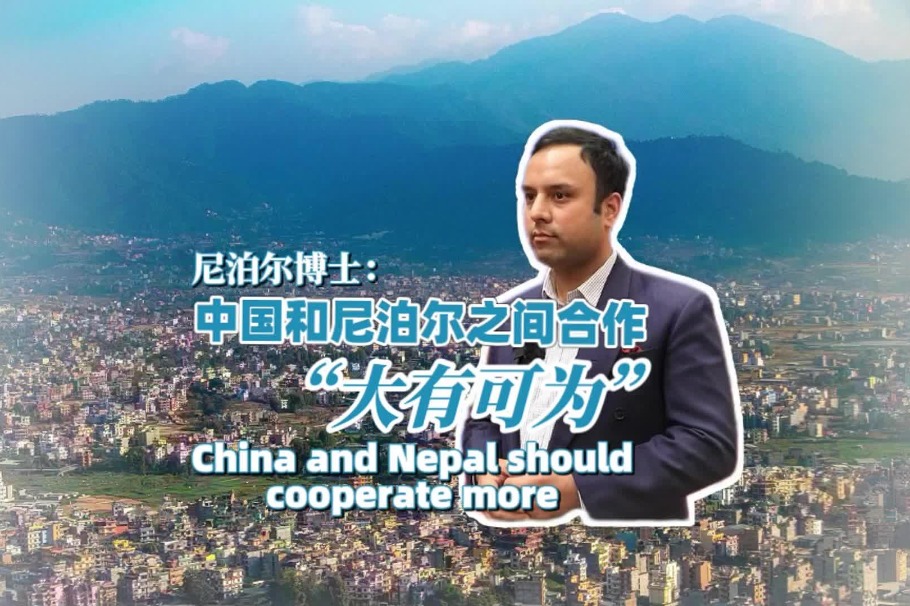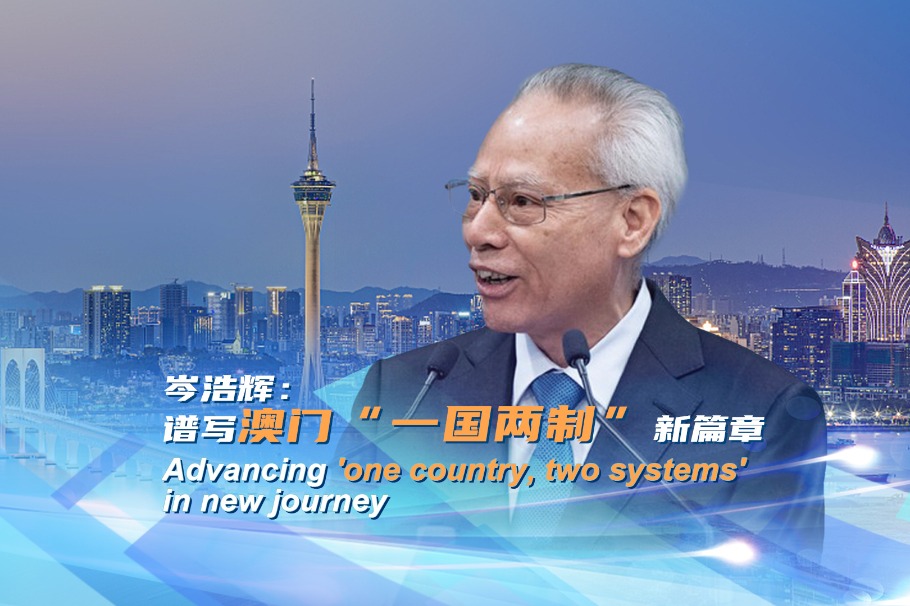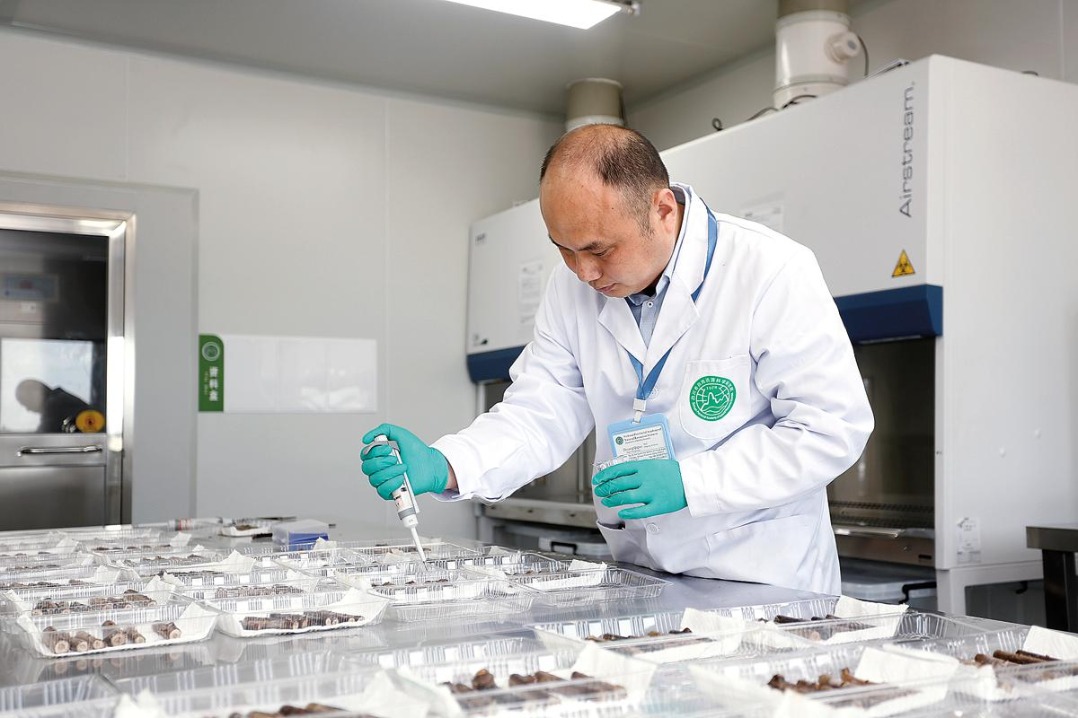Macao SAR to foster more benefits for China and Portuguese-speaking nations

Editor's note: This year commemorates the 25th anniversary of Macao's return to the motherland. China Daily talks to prominent figures in the special administrative region about their reflections on reaching this significant milestone, and gets their views on the city's continued prosperity. Ji Xianzheng, secretary-general of the Permanent Secretariat of the Forum for Economic and Trade Co-operation between China and Portuguese-speaking Countries (Macao), says Macao SAR has achieved tangible progress in building itself into cooperation platforms for China and Portuguese-speaking countries over the past 25 years, and will continue fostering mutual benefits and win-win outcomes for both sides.

1. How do you view Macao's development since its return to the motherland? Among the achievements made by Macao, which have impressed you the most? What about your sector — has there been any major progress over the past 25 years?
Over the past 25 years, Macao has fully leveraged its advantages of strong support from the motherland and close connection with the world, achieving significant economic and social development and is in its best period of prosperity and stability in history. Macao has actively participated in the development of the Guangdong-Hong Kong-Macao Greater Bay Area, the Belt and Road Initiative and other national development strategies. The Forum for Economic and Trade Co-operation between China and Portuguese-speaking Countries (Macao) has promoted economic and trade cooperation and exchanges between China and Portuguese-speaking countries. Today, Macao has developed into a vibrant international metropolis.
The Permanent Secretariat of the Forum, where I serve, is an international organization based in Macao. It mainly carries out preparations for the triennial Forum Macao Ministerial Conference and the implementation of the consensus reached at the conferences. Established following the establishment of the Macao SAR government, the Forum is hosted by the Ministry of Commerce, organized by the Macao SAR government, and participated in by nine Portuguese-speaking countries. With business cooperation and development as the theme, the Forum's objective is to promote the common development of the Chinese mainland, Macao and Portuguese-speaking countries. Since its establishment in 2003, the Forum has played an important role in deepening cooperation in various fields such as economic and trade, culture, and technology. It has also assisted in and witnessed the transformation of the China-Portuguese-speaking Countries Commercial and Trade Service Platform from a concept to reality, from a blueprint to a tangible entity.
2. The central government has rolled out an array of policy initiatives for Macao. Has any particular policy benefited your sector? If so, how?
The Chinese central government has hosted six Forum Macao Ministerial Conferences, contributing to the signing of the Strategic Plan for Economic and Trade Cooperation by ministers from participating countries. China has also put forward measures promoting trade and strengthening cooperation with Portuguese-speaking countries four times, including efforts in building Macao into the China-Portuguese-speaking Countries Commercial and Trade Service Platform. Under the guidance of the central government, various government departments and sectors have actively engaged with the Macao SAR government, enriching the mechanisms and functions of the platform.
At present, Macao has established multiple cross-government and multi-sectoral cooperation mechanisms, including the Portuguese Speaking Countries Food Distribution Center, the China and Portuguese-speaking Countries SME Business Service Center, the Exhibition Center for Economic and Trade Cooperation between China and Portuguese-speaking Countries as well as a financial services platform, a youth innovation and entrepreneurship center, an association of enterprise directors, a center for cultural exchanges, a Chinese Portuguese bilingual talent training base, and a bond investment platform. The central government, and business associations and local authorities from the mainland have assisted Macao in hosting a series of activities related to commerce, infrastructure, finance, tourism and regional cooperation, helping Macao continue to play a crucial role as a "specific connector" between China and Portuguese-speaking countries.
3. This year marks the third anniversary of the establishment of the Guandong-Macao In-Depth Cooperation Zone in Hengqin. In your opinion, how should Macao continue to leverage the Hengqin zone's advantages to develop itself and your sector?
The Guangdong-Macao In-depth Cooperation Zone in Hengqin is a zone for innovation, favoring joint negotiation, construction, management and sharing between Guangdong and Macao. It will significantly expand Macao's development space, promoting Macao's economic diversification and better integration into the national development framework. Macao can join hands with the zone to leverage the advantages of institutional innovation and further play its role as a "specific connector" for Portuguese-speaking countries.
On one hand, it can encourage Portuguese-speaking countries to explore the vast mainland market through Hengqin to expand their development opportunities. On the other hand, it can support Hengqin enterprises in exploring business opportunities in Portuguese-speaking countries, thus enlarging the scope of cooperation. Consequently, this will promote joint development between Macao and Hengqin, fostering mutual benefits and win-win outcomes for China and Portuguese-speaking countries.
4. The Guangdong-Hong Kong-Macao Greater Bay Area has seen many notable developments over the past few years. How has Macao's integration with other parts of the GBA impacted your career? What kind of collaboration in the GBA you are anticipating?
The Permanent Secretariat frequently interacts with other key cities of the Greater Bay Area. For example, the Secretariat has hosted delegations from Shenzhen and Zhuhai, and supported the hosting of seminars to introduce Portuguese-speaking countries' economic and trade opportunities to Shenzhen and Zhuhai enterprises during the 2024 Macao International Trade and Investment Fair. Together with relevant organizations, the Secretariat has held four editions of the 929 Challenge — a startup competition aimed at strengthening business and trade exchanges between China and Portuguese-speaking countries, which had enthusiastic participation from university students in the GBA. The 16th Cultural Week of China and Portuguese-speaking countries, organized by the Secretariat, added a new event featuring the exhibition and broadcast of Chinese-Portuguese audiovisual works, with active involvement from the media outlets of Guangdong province and the Macao SAR. The Secretariat also provides various training courses for professionals from Portuguese-speaking countries, organizing field trips to relevant institutions across the GBA to enhance participants' understanding of China's development, especially in the Bay Area. In the future, the Secretariat anticipates more opportunities for economic and cultural cooperation with other GBA cities, aiming to expand the influence of its activities, better support the development of the GBA, and further promote economic and trade cooperation between China and Portuguese-speaking countries.
5. Macao is a unique blend of Chinese and Portuguese cultures. How do you think this fusion can help the nation enhance communication with the international community and tell good stories of China?
Macao, with both Chinese and Portuguese as its official languages, maintains a longstanding and close historical and cultural connection with Portuguese-speaking countries. The bond gives the city a unique advantage in bridging China and the Portuguese-speaking countries that spread across four continents. It also allows Macao to convey messages in ways that are readily understood in Portuguese-speaking countries and regions, allowing for effective storytelling of China's positive narrative as well as the story of the economic and trade cooperation between the two sides. During the sixth Forum Macao Ministerial Conference held in April, a proposal was put forward to establish a China-Portuguese-speaking countries audiovisual cooperation mechanism in Macao, aiming to facilitate mutual understanding among the peoples of various countries through film and television works.
6. Many of the city's young people were born after the city's return to the motherland. How do you think the special occasion resonates with the young generation? What messages would you like to convey to them at this historic moment?
An individual's fate is inseparable from the broader environment provided by the era and national development. As the saying goes, "The times make the heroes". Since its return to the motherland, Macao has achieved significant progress in political, economic, societal and cultural aspects, taking new steps to integrate into the national development strategy. Macao's young people face favorably unprecedented conditions and vast opportunities for growth and entrepreneurship unlike any previous generation. On the occasion of the 25th anniversary of Macao's return to the motherland, it is hoped that Macao's young people will uphold a patriotic spirit, strengthen their knowledge reserves, actively participate in Macao's diversified development, immerse themselves in the construction of Chinese-style modernization, and strive to realize their own life's value with a spirit of vigor and enterprise.
7. What accomplishments do you hope Macao will achieve in the next 25 years?
Standing at the starting point toward the next 25-year milestone, we look forward to Macao maintaining its long-term prosperity and stability, continuing to leverage its strengths to serve the needs of the nation, and consistently improving the construction of the China-Portuguese-speaking countries platforms. There is no doubt that Macao will keep polishing its "golden business card" as an international metropolis and will open a new chapter in the principle of "one country, two systems".
















